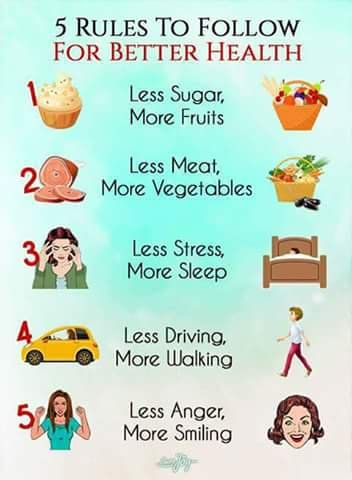
There are many things that can increase your risk of developing mental illness. However, it is important to understand how emotional well-being can help you. Even though you may not have the ability to control your emotions completely, it is important to recognize them and keep them in context. The ability to achieve emotional well-being can help you stay mentally healthy. These are some suggestions to help you improve your emotional well-being.
Learning to identify your feelings and expressing them in a constructive manner can help you develop emotional health. If you feel angry, you can take a moment to reflect on what you are going to do next. Recognizing your feelings can help you manage the intensity of your emotions. Try to think about the next thing you will do if you are feeling scared. Everyday life has many examples that show emotional health.

You can improve your emotional well-being by learning how to engage with it. For example, you can learn to ask yourself why you're feeling a certain way, or learn to express negative emotions in a more productive manner. If you have a close friend or family member, you can confide in them. These types of relationships foster emotional health and help you overcome challenges. You can also use these relationships as a way to gain a better understanding of yourself.
It can help you control your emotions by allowing mindfulness and meditation to be part of your daily routine. This will help you become more self-aware. It is important to take ownership of your actions if you want to improve your emotional health. Be responsible for your actions and the decisions you make. You can also make healthier choices, such as limiting your intake of caffeine and alcohol. They can have negative effects on your body. It's important that you recognize when you feel down or depressed, and then work to fix those things.
An additional way to achieve emotional well-being is through a daily schedule of service. It's important to be able to handle stress and deal with difficult times. Service activities allow you to make friends and build relationships. It is vital to be aware of your surroundings and the people you meet. In the same vein, you can also give back by serving others. You can serve your community by reading the bible or singing to God.

An emotional lifestyle is important for your overall health. It will help you cope with major life events and challenges. You will have more self-awareness if you have healthy emotions. When a stressful event occurs, you can redirect your emotions to be a more positive person. Good mental health will make it easier to cope with stressful events. You'll be able to handle it in a healthy way.
FAQ
Why is it important that we live a healthy and happy life?
A healthy lifestyle will help us live longer and happier lives. Regular exercise, healthy eating habits, healthy sleep habits and stress management can all help prevent strokes, heart disease, diabetes, and cancer.
Healthy lifestyles will help us to cope with daily stresses better and improve our mental health. Healthy lifestyles will increase self confidence, and make us look and feel older.
How can I live my best life everyday?
It is important to identify what makes you happy. You can then work backwards once you know what makes YOU happy. You can also ask other people what they do to live the best lives possible every day.
You can also read books by Wayne Dyer, such as "How to Live Your Best Life". He talks about how to find happiness and fulfillment at all stages of our lives.
Does being cold give you a weak immune system?
Cold can make you less immune to infection because your body makes fewer white blood cells, which are essential for fighting infections. You will feel less pain if you are cold.
What are 10 healthy habits you can adopt?
-
Eat breakfast every day.
-
Don't skip meals.
-
Eat a balanced, healthy diet.
-
Get plenty of water.
-
Take care your body.
-
Get enough sleep.
-
Avoid junk food.
-
Do some form of exercise daily.
-
Have fun
-
Meet new people.
Statistics
- WHO recommends consuming less than 5% of total energy intake for additional health benefits. (who.int)
- In both adults and children, the intake of free sugars should be reduced to less than 10% of total energy intake. (who.int)
- Extra virgin olive oil may benefit heart health, as people who consume it have a lower risk for dying from heart attacks and strokes according to some evidence (57Trusted Source (healthline.com)
- According to the Physical Activity Guidelines for Americans, we should strive for at least 150 minutes of moderate intensity activity each week (54Trusted Source Smoking, harmful use of drugs, and alcohol abuse can all seriously negatively affect your health. (healthline.com)
External Links
How To
Here are 10 tips to help you live a healthy life
How to live a healthy life
We live in a fast world where we don't get enough sleep, eat too much, drink too much alcohol and smoke cigarettes. We don't take care of our body's health properly.
It is very hard to find a balanced diet and exercise routine when you work fulltime and do all these things at the same time. It is even more difficult if you feel stressed. Then, your mind tells yourself that it cannot handle this situation any more so we feel guilty about it and give up.
It is possible that your body is experiencing problems. Talk to your doctor about your condition. If there are no signs of something abnormal, stress from your job could be the cause.
Some people think they're lucky because their jobs let them go to the gym on a regular basis or they have friends who help them stay fit. Those people are lucky. Those people don't have any problems. They have everything under control. I wish everyone could be one of them. Unfortunately, many of us don’t know how to manage our personal and work lives. Many people have bad habits that lead to illnesses such as heart disease and diabetes.
Here are some tips to help improve your lifestyle.
-
Get 7 hours of sleep minimum and 8 hours maximum each night. You should be able to sleep in a proper position and avoid caffeine the hour before you go to bed. Caffeine blocks the melatonin hormones making it hard to fall asleep. Make sure your bedroom is dark and clean. Blackout curtains are a must, especially if you work late at nights.
-
Eat healthy. Have breakfast every morning. Sugar products, fried food, processed foods and white breads should be avoided. Fruits, vegetables, whole grains and whole grains are good options for lunch. A good snack option for afternoon is to include protein-rich snacks like nuts, seeds, beans and dairy products. Avoid junk food like chips, candies and cakes.
-
Get plenty of water. Most people don't drink enough. Water helps us to burn more calories, keeps our skin looking young and supple, flushes toxins from our system and improves digestion. Drinking six glasses of water daily will help you lose weight faster. Checking the color of urine is a good way to gauge your hydration. Dehydrated means yellow; slightly dehydrated means orange; normal means pink; overhydrated means red; clear means highly-overhydrated.
-
Regular exercise can increase energy and decrease depression. Walking is an easy way to improve your mood. Although walking may seem simple, it is not easy. It requires concentration and effort. Your brain must be able to concentrate on walking, while taking deep breaths and slowing down. A 30-minute walk for 100 to 150 calories can be burned in 30 minutes. Slowly build up and start slow. To prevent injuries, be sure to stretch after exercising.
-
Positive thinking is key to mental health. Positive thinking can create a happy atmosphere within us. Negative thoughts can cause anxiety and drain our energy. Try to visualize the things you are aiming to achieve. You don't have to take on all of the new tasks at once. Break them down into smaller tasks. You will fail occasionally, but you can always get up and try again.
-
Say No. We can often be so busy that it is hard to see how much of our time we are wasting on useless tasks. It is important you can say no when it is necessary. Not saying "no" is rude. You are simply saying "no" to something. You will always find another way to do the job. Try to set boundaries. Ask for assistance from someone else. This work can be delegated to someone else.
-
Take care of your body - Keep track of your diet. Eat healthier foods to boost metabolism and shed extra weight. Avoid heavy and oily foods. They can increase cholesterol levels. It is a good idea to eat three meals and two snacks per day. The recommended daily intake should be between 2000 and 2500 calories.
-
Meditation is an excellent stress reliever. Sitting still with closed eyes allows your mind to relax. This exercise will improve your ability to think clearly and help you make decisions. Meditation will help you feel calmer and happier.
-
Don't skip breakfast - Breakfast is the most important meal of the day. Skipping breakfast could cause you to eat too much during lunchtime. You don't have to wait until noon to enjoy a healthy breakfast. Eating breakfast boosts your energy and helps you manage your hunger better.
-
Make sure you eat clean food. Food has a greater impact on your mood than you realize. Avoid junk food and food that contains artificial ingredients or preservatives. These foods make your body feel acidic, and can trigger cravings. Fruits and vegetables are rich in vitamins and minerals that improve overall health.